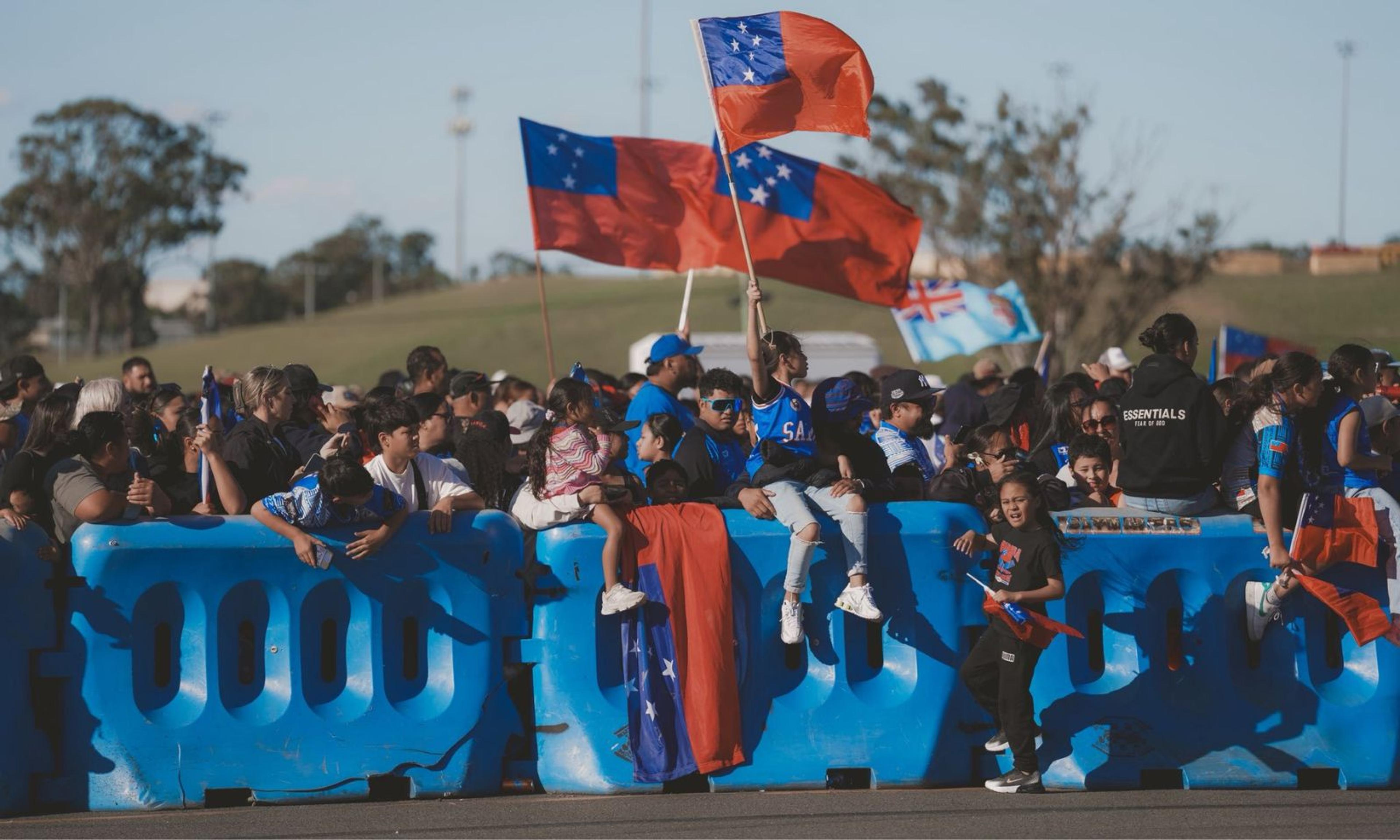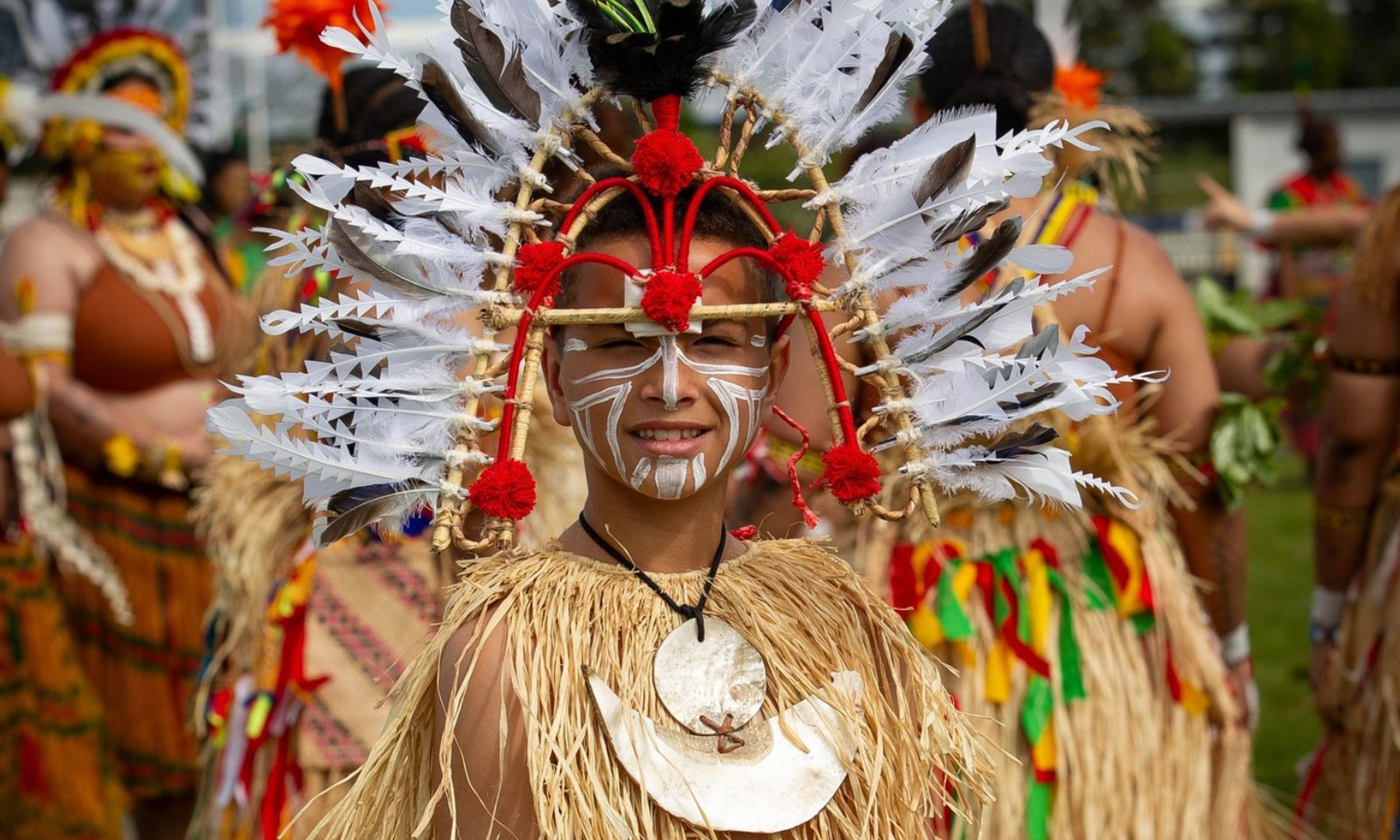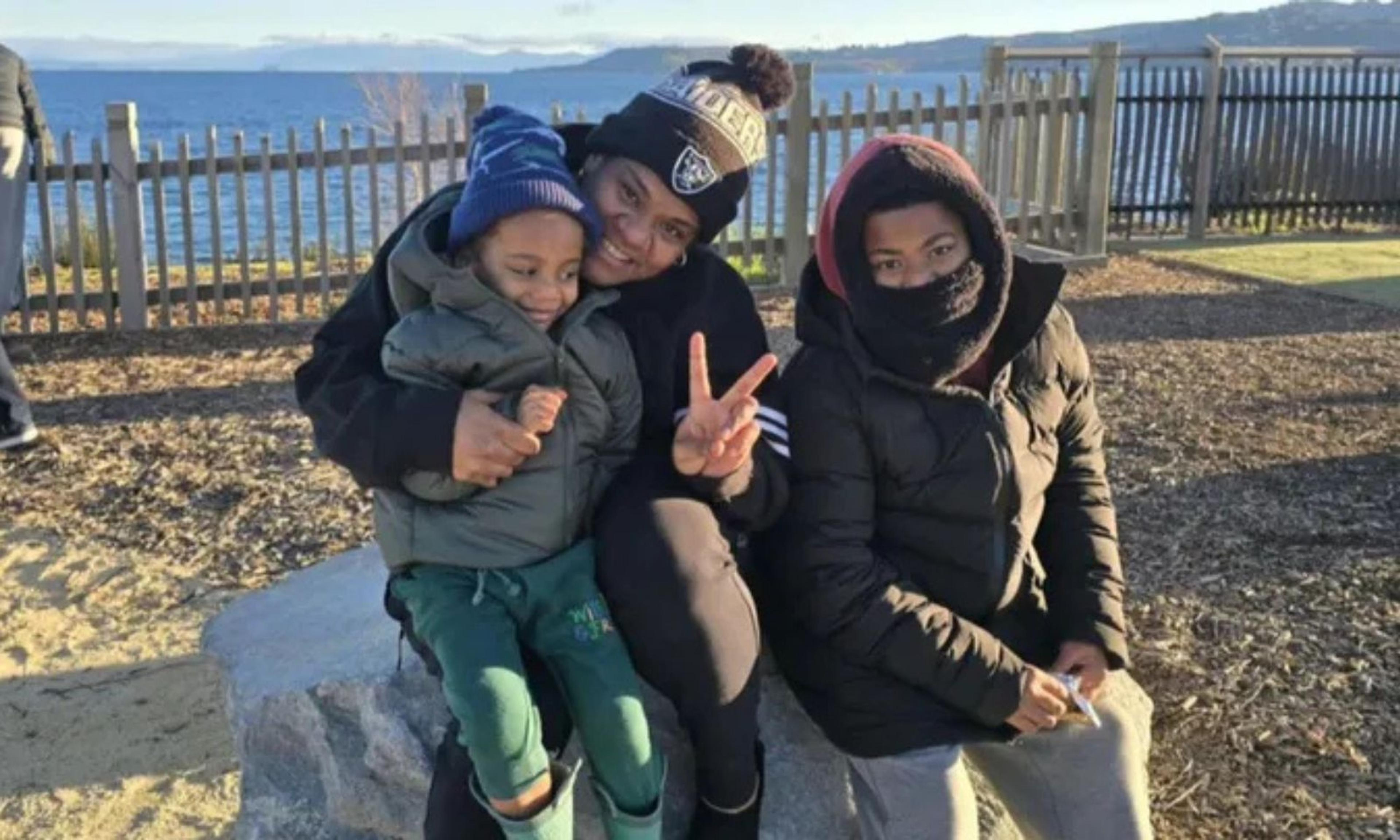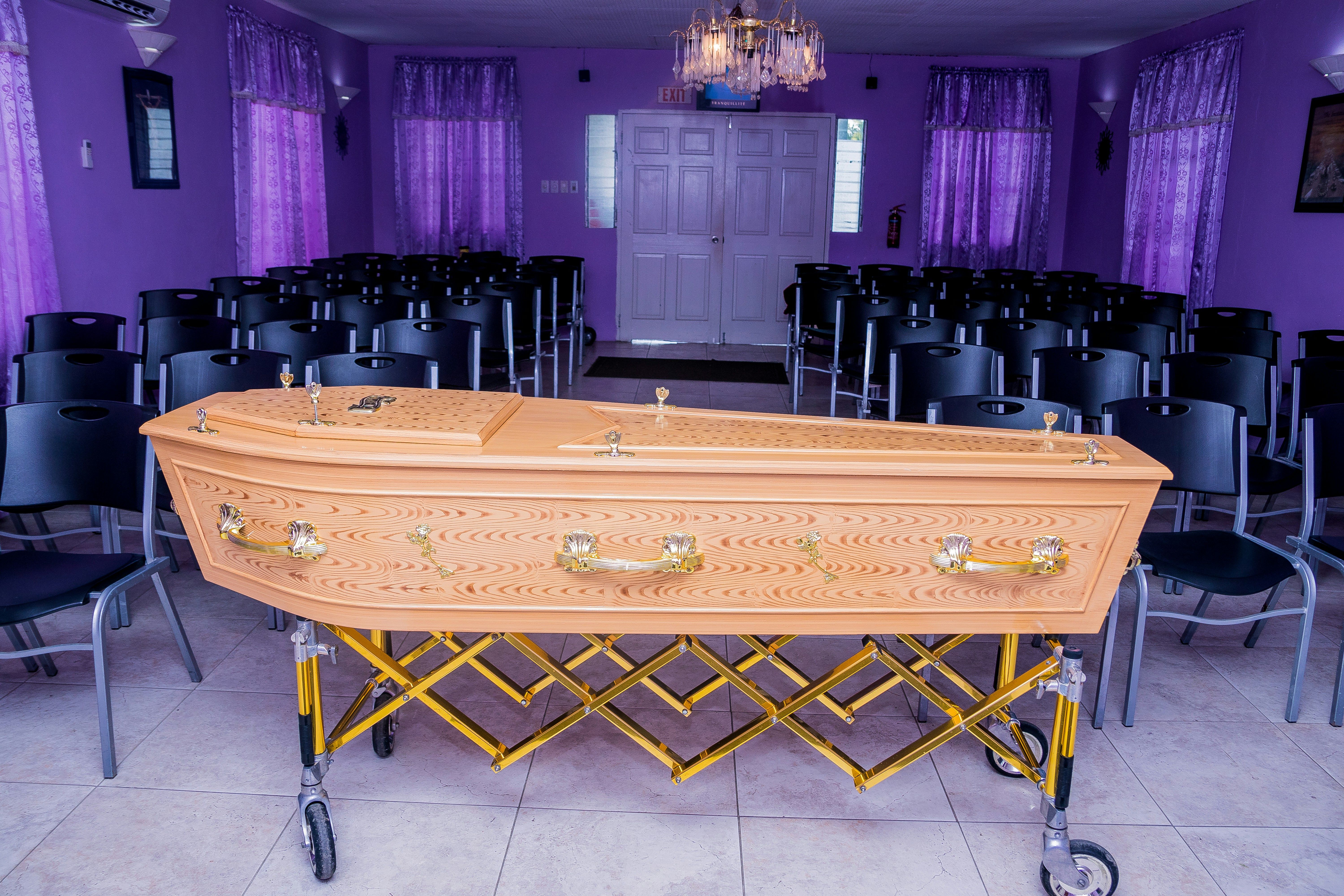

Francis Tipene speaks with PMN News as part of Dying Matters Awareness Week.
Photo/Tipene Funerals
Francis Tipene reflects on upholding cultural care in funeral services amid recent challenges
As he tries to recover from the fallout of a scandal, the funeral director says their commitment to grieving families remains unwavering.



‘Bring Luisa home’: Family’s plea after Fijian mother’s death in Auckland apartment


Toa Sāmoa name strong side for Pacific Cup final


‘Bring Luisa home’: Family’s plea after Fijian mother’s death in Auckland apartment

This story may contain sensitive content.
Francis Tipene runs one of New Zealand’s most recognised funeral homes and has dedicated more than 15 years to supporting families during their most difficult times.
He emphasises the cultural significance of funerals for Māori and Pacific communities, sharing insights during an interview with William Terite on Pacific Mornings.
“For our Māori and our Pacific communities, we do funerals and take care of our loved ones very, very well.
“We know how to grieve. We know how to spend time with one another. I love that we have the open caskets.
“A lot of our pālagi counterparts don't take their loved ones home. They leave them at the funeral home and come for visitation. I'm so proud of the way we do things, not only for us now, but for the future generations, for our children. Let's keep doing what we're doing.”
Watch Francis Tipene's full interview below.
Tipene highlights the diversity of cultural practices within the industry, saying, “We've got a number of funeral directors who specialise in their cultural tangihanga or funeral practices.”
This week is Dying Matters Awareness Week, with events and workshops held across the country.
Tipene Funerals, recognised through the reality TV series, TheCasketeers, has branches in Auckland’s Onehunga and Henderson, as well as in Porirua.
But the business has faced challenges in recent years.

Fiona Bakulich pleads guilty in February. Photo/File
In 2023, Fiona Bakulich, a former employee, was accused of defrauding families by charging for services that were never carried out. Bakulich was jailed in April this year for interfering with human remains and obtaining money through deception.
During the trial, Judge Evangelos Thomas stated Bakulich had preyed on vulnerable people. "You looked them so softly in the eye and stabbed them so ruthlessly in the back," he said during the trial.
Tipene says Bakulich’s betrayal has impacted his business and his family, prompting him to ask difficult questions.
“What were we running? Why wasn't I on point? These are all absolutely valid questions. But at the end of the day, there was a huge sense of trust there,” he tells Terite.
“This person knew their culture and their family. I can’t be judged for someone else’s actions, but I’ve definitely learned from them.”

The Casketeers TV show ran for six seasons between 2018-2023. Photo/Facebook/The Casketeers
On media coverage of the case, Tipene admits: “I say this with all humility, when you're a famous Māori or Tāngata o Te Moana-nui-a-kiwa [person of the Pacific], they're going to come after you.
“You put your life out there, they're going to come after you with whatever mistake I make, and they still will. So I'm always watching myself.”
An unregulated industry
Tipene says the wider industry has already started improving its standards in the wake of his company’s troubles.
“It's taken this tragedy for everyone to tighten up their game. Maybe some regulation might be good for all of us, keeping a good level of standard.”
He admits he “gave too much trust away” but has since tightened oversight. “I'm a lot more tired now because I'm watching everything that happens at work. But I trust and love the staff that we have now, and slowly things are coming back.”
Tipene Funerals chooses not to be part of the Funeral Directors Association of New Zealand (FDANZ), saying: "It doesn't serve our people very well.
"There is no regulatory body we need to part of as this is an unregulated industry at this point in time. We hope for that to change."

Waikumete Cemetery. Photo/Auckland Council
Cost of dying
Insurance provider New Zealand Seniors puts the average cost of a funeral at $10,000, but only five per cent of New Zealanders have pre-planned their funerals.
Tipene says balancing affordability with cultural expectations is a “fine line”.
“There's ways to beautify things without having to spend a lot of money. We don't always have to be better than the last funeral. We don't always have to have the gold trim.
“People tend to spend a lot during grief. In this economic situation that we're all in, it's about pushing the dollar further and making sure that people are not overspending …We’re not [just] funeral advisors anymore, we're more financial advisors, making sure everyone keeps to a limit.”
Beyond arranging services, Tipene says the role of funeral homes is increasingly shifting towards advising families before death occurs and guiding conversations about their wishes.

Families are encouraged to discuss a person's wishes before going ahead with a lavish funeral. Photo/File
“We could just say, ‘Look, I just want a cardboard casket, please’. Then the children come along and give you all the lights and the glamour.
“It is about making sure everyone has that kōrero in the family, that talanoa, to be advised about what the future looks like and what costs look like.”
Despite the challenges he faces, Tipene says his focus remains on supporting families in his care.
“I've just got to be concentrating on the families that are in our care and making sure we make beautiful send-offs for them. It's all about the funerals that come through and what the families say.”
The Funeral Directors Association of New Zealand disagrees with Tipene's assesment.
Larni Hepi, Māori advisor to the FDANZ board, says the organisation is about ensuring members understand cultural practices and can uphold traditions with aroha and professionalism.
“Every single day, our members, a good number of them Māori themselves and deeply rooted in their communities, are right there with whānau in their grief. They show manaaki, they respect tikanga, and they walk carefully alongside families," he says in a statement.
"That’s where FDANZ adds value, backing funeral directors across the motu so they can serve their communities, Māori and non-Māori, with dignity, compassion, professionalism, and high standards of care.
This article has been updated to include a comment from the Funeral Directors Association of New Zealand.